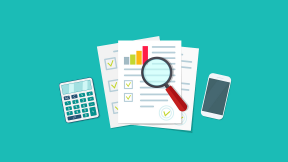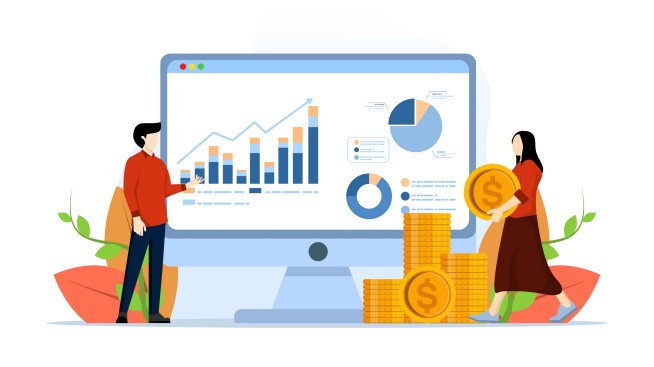710 credit score: A guide to credit scores

Quick insights
- A 710 credit score is considered “good” by the two main credit scoring models.
- You may be able to access several financial opportunities with a good credit score, such as more favorable rates for mortgages.
- There are ways to help improve your credit score, including improving your debt-to-income ratio.
Credit scores are influenced by factors such as payment history, credit utilization, length of credit history, credit mix and new credit. Understanding these factors and how they impact your specific credit score can help individuals make informed decisions. Let's explore what a 710 credit score could mean for you and your financial wellness below.
Unlocking the potential of a 710 credit score
Let‘s review the breakdown of scores for both VantageScore® and FICO® scoring models below.
VantageScore credit score ranges are:
- Excellent: 781 to 850
- Good: 661 to 780
- Fair: 601 to 660
- Poor: 500 to 600
- Very Poor: 300 to 499
FICO credit score ranges are:
- Exceptional: 800+
- Very Good: 740 to 799
- Good: 670 to 739
- Fair: 580 to 669
- Poor: 579 and below
A credit score of 710 is considered a good credit score by these two scoring models. It falls within the VantageScore range of 661-780 and FICO score range of 670-739.
With a 710 credit score, individuals may have access to a variety of credit options. However, you may be willing to continue working towards improving your credit score for additional financial opportunities.
Purchasing a home with a 710 credit score
Are you thinking about purchasing a home? It may be possible to do this with a 710 credit score, but it may be more challenging than if you had an excellent credit score.
Whatever you decide, reviewing and comparing different lenders and loan options can help you find your best fit for your specific circumstances. Though they are important, credit scores are just one of several factors lenders use when approving home loans. In general, some lenders may require a larger down payment, charge higher interest rates or have stricter loan terms for mortgage applicants they may consider in the "good" range.
Exploring borrowing opportunities with a 710 credit score
Credit scores are one of the key factors lenders consider when determining borrowing capacity. A higher credit score generally allows individuals to qualify for larger loan amounts. This doesn’t just go for mortgages, as explained above, but for other types of loans as well. Personal loans, auto loans and credit cards all have varying credit score requirements.
With a 710 credit score, you may be able to get approved for loans and credit card accounts with favorable annual percentage rates (APRs). You may qualify for higher credit limits as well. Keep in mind that, in addition to your 710 credit score, lenders also consider factors such as income, debt-to-income ratio, employment history and collateral (if applicable) when determining loan amounts.
To maximize borrowing potential, individuals can focus on improving other aspects of their financial profile too, such as increasing income, reducing debt and saving for a larger down payment.
Managing a 710 credit score
It takes time to build up a credit history and achieve a 710 credit score, though this may vary depending on individual circumstances. For example, you may have started from a young age as an authorized user on your parent’s credit card for several years. Depending on the payment habits of the primary cardholder, this experience might have allowed you to build credit and establish a credit score.
Regardless, achieving a 710 credit score takes time and demonstrating a track record of consistent credit behavior is important. It generally takes consistent positive credit behavior over time to reach this level, and to maintain it requires similar healthy habits.
Once you’ve achieved this score, you may want to work towards maintaining (or even improving) it. To do this, consider taking the following steps:
- Continue with your good credit habits, such as paying bills on time.
- Maintain a low credit utilization ratio (about 30% and less) by, for example, keeping your credit card balances low.
- Regularly monitor your credit reports for errors or discrepancies.
- Avoid common mistakes such as making late payments and closing old accounts, as these actions can negatively impact credit scores.
Improving a 710 credit score
A 710 credit score is good, but what can you do to make it “excellent” or “exceptional” by credit scoring standards? There are several benefits of having an excellent credit score. An excellent credit score could provide access to better interest rates, loan terms and credit card offers, as it demonstrates financial responsibility and can help open doors to various financial opportunities.
You may consider improving your credit score as you’re planning for large purchases. After all, a high credit score can help you save on interest in the long run, so improving your score before applying for a new loan could be useful.
To help you improve your credit score, consider the following strategies:
- Protect your information. Your progress could be hindered by bad actors trying to steal your information and attempt identity theft. Be sure to shred those documents with personal or financial data before throwing them away. You may want to use tools to help monitor your information online, such as setting up identity monitoring alerts provided by Chase Credit Journey®.
- Diversify your credit. If you’re planning on taking out another line of credit, consider a type you haven’t used before (for example, a personal loan rather than a new credit card account) in order to broaden your credit mix. Note that this can initially hurt your score for a short time due to lenders running a credit check. Over time, as you build your payment history, this new line of credit can positively impact your score.
- Improve your debt-to-income ratio. This is an important factor to keep in mind, regardless of how much money you may make. For example, if you get a bump in your salary, try to maintain your current spending or keep it relatively low and continue to make your monthly payments on time.
In summary
With a 710 credit score, you may already on a good financial path. Responsible credit card usage, making loan and credit card payments on time and managing debt effectively are all essential for maintaining a good credit score. Improving it even further may take some time and discipline, but it is possible.



